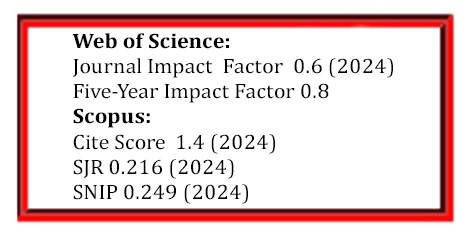The Modification of Rheological Behaviour of Solvent – Based Adhesive by Disperse Filling
Keywords:
solution, rheology, viscosity, polychloroprene adhesive, disperse filler, aged polypropylene.Abstract
The possibility to modify rheological behaviour of solvent-based polychloroprene adhesives by various amounts of dispersed secondary polypropylene particles has been investigated. It was shown that obtained compositions in investigated shear flow conditions shows non-Newtonian behaviour typical for concentrated polymer solutions. The pseudoplasticity of solutions was evaluated according to means of shear thinning index. It was found that increase of both filler and solution solid content increase compositions pseudoplastisity. Independently on solution solid content the increase of filler content leads to decrease of solution viscosity, also.
Concentration-time superposition was applied to identify the role of filler content and solution concentration on relaxation properties of polychloroprene adhesive. The increase of filler content increase the relaxation function and this effect is higher the higher solution concentration. On the other hand, construction of filler content – solution concentration - invariant curve showed that, decrease of solution concentration leads to the increase of extensity of master curve and decrease of intensity of relaxation processes.
Downloads
Published
Issue
Section
License
The copyrights for articles in this journal are retained by the author(s), with first publication rights granted to the journal. By virtue of their appearance in this open-access journal, articles are free to use with proper attribution in educational and other non-commercial settings.



